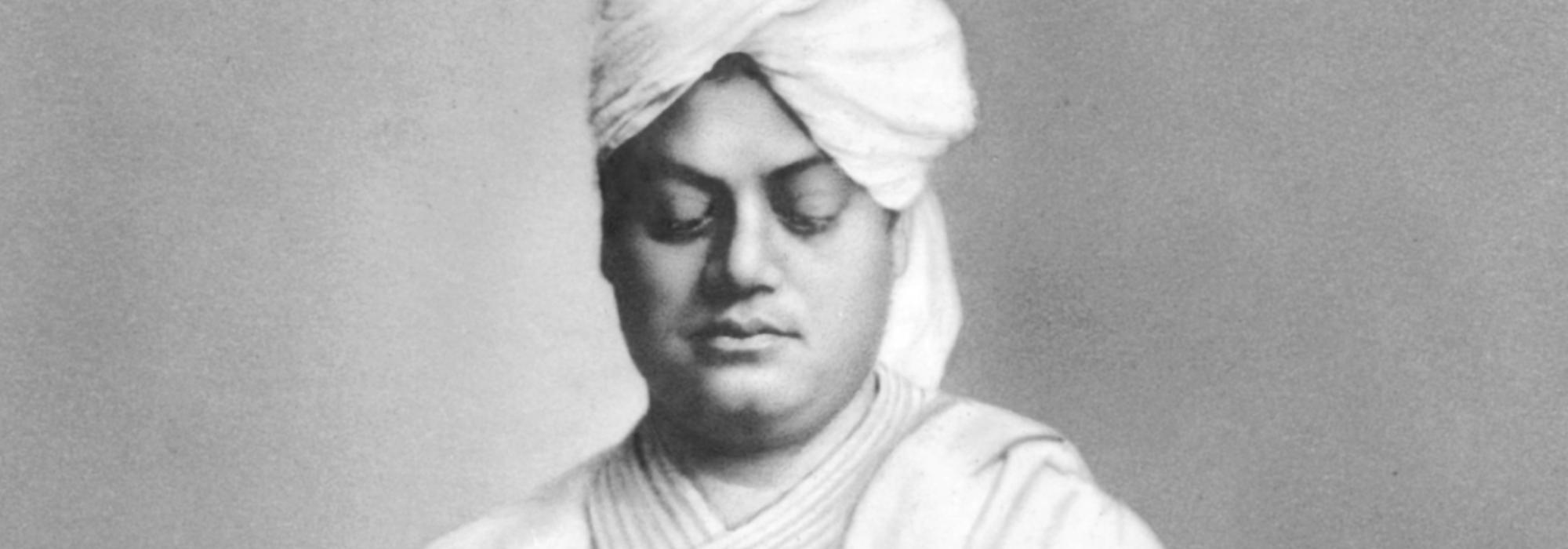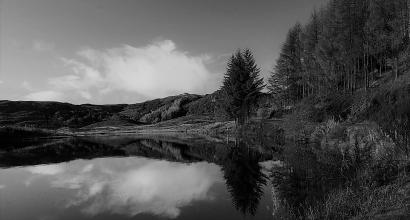"It's better to wear out than to rust out", Swami Vivekananda used to often say. True to these words, having worked tirelessly for over a decade, his body began to wear out by his late thirties. Diabetes, obesity and related complications made his health most precarious. There was a condition of general dropsy with his feet especially swollen, making it difficult for him to walk. His body became so sensitive that the slightest touch would cause him acute pain. Sleep was hard to come.
At this difficult juncture, at the fervent request of one of his brother monks, the Swami agreed to place himself under ayurvedic treatment. The treatment came with an expectedly tough dietetic regimen. He was not allowed to drink water or take salt. He had to appease his thirst with milk! Although he scrupulously followed this regimen, the Swami was always sceptical of the treatment's efficacy. His scepticism becomes clear in the following conversation recorded by one of his disciples:
Disciple: The treatment is doing you good I hope?
Swamiji: That I don't know. I am simply obeying the orders of my brother-disciples.
Disciple: I think that indigenous drugs such as the Vaidyas use, are very well-suited to our constitution.
Swamiji: My idea is that it is better even to die under the treatment of a scientific doctor than expect recovery from the treatment of laymen who know nothing of modern science, but blindly go by the ancient books, without gaining a mastery of the subject — even though they may have cured a few cases.1
But Swamiji was in for a surprise. Despite his disbelief in the treatment, he began to improve! His official biography notes that after two months' use of ayurvedic medicines, he felt greatly benefited.2
Such counter-intuitive experiences are quite commonplace and warrant careful study. This study would not only clarify the case for medical pluralism but also facilitate a more prudent use of traditional medical systems.
The ground for Swamiji's initial scepticism of ayurvedic treatment was straightforward - the basic medical sciences (anatomy, physiology and pathology) contained in the ancient texts were unarguably primitive and outdated; clinical care based upon such outdated information is obviously worthy of utmost scepticism.
Such scepticism, though valid, is not tempered with a nuanced understanding of the way therapeutic discoveries happen. While it is true that advances in basic medical sciences do contribute to newer drug designs and better clinical care, a discerning student of the history of medicine would concede that many practices in clinical care are derived from the simple age old empirical method of 'trial and error' often supported by luck and serendipity. James Le Fanu, a leading medical intellectual of the UK, has elegantly shown in his chronicle of modern medicine, how the accidental discoveries of many wonder drugs were made completely independently of any biological understanding of the disease process: Hench's surprising discovery of the astonishing effects of cortisone in rheumatoid arthritis; or Laborit's astute perception of the 'euphoric quietude' in his surgical patients, which led to the psychiatric drug chlorpromazine.3
A simpler illustration would help the layman appreciate this point better. Almost everyone has had hiccups and the most well known home remedy for it has been to drink water quickly. This is clinical medicine at its simplest; its discovery involved the age old 'trial and error' method. It did not require the scientific understanding that hiccups are due to spasms of the diaphragm and that stimulating the vagus nerve by drinking water quickly controls these spasms! Water has been a remedy for hiccups since aeons before the functions of diaphragm and vagus nerve even came to be known.
The urgent concerns of clinical care and the 'trial and error' experiences that these concerns beget have been the source of several great medical discoveries. Ancient medical texts can serve as a rich repertoire of such researchable, if not employable clinical experiences. The Nobel winning discovery of the anti-malarial drug artemisinin had for its source a two thousand year old clinical experience documented in a treatise of traditional Chinese Medicine!
It is nobody's case that a prudent practice of medicine today does not require a sound understanding of the basic medical sciences. A practice of traditional medical systems that is not adequately informed by these sciences can, at times, be a recipe for disaster. But to suppose that ancient medical treatises, because of their deficient grasp of the basic sciences, can contain no valuable clinical information at all, is plain scientific naiveté. Let's rid ourselves of such naiveté and with open-mindedness remember what a great medical teacher used to often tell his students,
From too much zeal for the new and contempt for what is old,
Good Lord, deliver us.4
References
- Vivekananda, Swami. The Complete Works of Swami Vivekananda. Volume 7. Conversations XIX, XX. Mayavati: Advaita Ashrama
- Eastern and Western Disciples. The Life of Swami Vivekananda. p.633. Mayavati: Advaita Ashrama
- James Le Fanu. The Rise and Fall of Modern Medicine. p.236. London: Abacus
- Robert Hutchison. Hutchison’s Clinical Methods. London: Saunders Elsevier















































